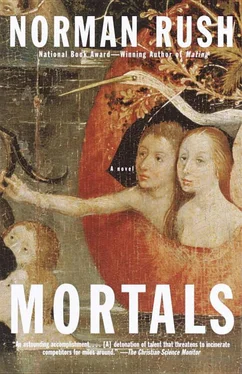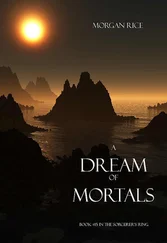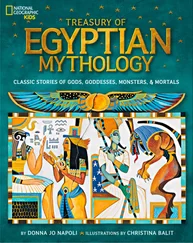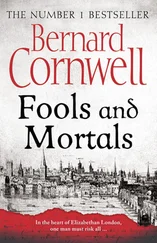He knew something about crosses, now that he came to think of it. During training one of his exercises had been to study, for three minutes, the twenty main historical variants of the cross, and their names. He could probably still put most of the names and shapes together, if not all of them. Some were easy. Lorraine, Greek, Maltese, Tau. Anyway, here I go, he thought: The twenty are … Latin, Calvary, Patriarchal, Papal, Lorraine, Greek, Celtic, Maltese, St. Andrew’s, Tau, Pommée, Botonée, Pattée … Avellan … Moline … Formée, Fourchée … Crosslet, Quadrate … Jerusalem. He supposed he could still match shapes and names. They had been pretty amazed. I perform, he thought. Whether Boyle appreciated his performance was another matter.
He had twenty minutes.
Every meeting with Boyle felt urgent. They didn’t know how to approach each other. Boyle liked to be called Chet, not by his whole first name, Chester. Ray couldn’t make himself address Boyle as Chet. His whole being wanted to call Boyle Boyle, but since Boyle was his superior he couldn’t. Boyle called him Finch, however, or occasionally Doctor Finch or Doctor. He had called him Doctor Finch only once. It had been hostile. Ray’s solution to the problem of what to call Boyle was to call him Chief, just once at the onset of each meeting, and then to use You throughout the balance of their meeting. A meeting could be quite long.
Ray’s mouth got dry just thinking about all this. Chief was a substitute for sir, which was impossible. He could manage Chief probably because Chief contained a slight hint of burlesque, very slight, in fact, almost nonexistent the way he said it, in fact probably nonexistent. Ray suspected that he was being called Finch because he was only contract and not staff.
Noon was approaching. The sun was intense and he slowed his pace as he passed through the bars of shade cast by the intermittent arcading. The crowds were as usual. Students from the nearby secondaries would be arriving any minute now, bound for the takeaways and the porridge and sweet reed vendors in the central plaza. The crowds were about twenty percent non-Tswana … whites, Indians, Chinese. The Batswana were on the slighter side, physically, which was a fact never mentioned.
Passing the Notwane Pharmacy, he was reminded of another coup coming out of his training period. This had been another flash memorizing exercise. They had given him two minutes to look into a medicine cabinet and study the contents, a typical medicine cabinet. And he had gotten all the prescription medications right, twenty of them, or fifteen, something he would still be able to do.
He hated Boyle, but not really. Boyle was new. Boyle was Boyle and not his predecessor, the beloved, to Ray, Marion Resnick, which was Boyle’s fault. Besides, Ray had survived other substandard chiefs of station. Marion had been the kind of person other people spontaneously referred to as a lovely man, which was indicative. Where had Marion gone? It was a peculiarity of his vocation that it would be held against him if he inquired at all searchingly about it. But the fact was that he felt he wanted to know where Marion was, now, in the world. He couldn’t ask Boyle, God knows. Marion was too young for retirement, so he was undoubtedly still out in the field somewhere.
Ray had reached the paved part of the mall. Like the development process itself writ small, the paving of the mall was a process of improvement that never seemed to get finished. Progress in extending the pavement from the plaza outward was slow and would halt for months at a time while parts of the already paved section were redone. The cement flagstones they were using tended to fracture. But worse was the problem of soil subsidence, which, combined with subterranean ant and termite activity, lent a funhouse aspect to walking on the flagstones as one or another of them would sink or tilt underfoot. Something seemed to find the grouting between the flags delicious, since it was always being sucked down and replaced by little tumuli of red silt. The paving was like The Tower of Babel by Brueghel, where half the edifice, the front and upper half of it, is solid or under construction, and the bottom part of the edifice, toward the rear, is falling into ruin as fast as the top tiers are being completed. The image of the Tower of Babel was fresh in his mind because Morel had a framed reproduction of it in his effects, which Ray had taken note of during his second canvass of Morel’s things, out at Customs.
To someone like Marion he could have pitched Morel’s taste in art as, in a certain way, a subject of interest. There was a theme. Another framed reproduction was of a blown-up detail from Signorelli’s The End of the World , with Renaissance Italian men in the street staring up at the sky in terror. What was that? There was no feeling that the individual pictures had been chosen one at a time just because Morel liked them, the way he or rather Iris chose their pictures, since that was her province. A true collection of art, the sign of its being a true personal collection, would be that it was motley. Theirs was. Not that they had a collection. They had an assemblage. Iris was very catholic in her taste. She liked Van Eyck. She liked an American landscape painter named John Beerman and had nicely framed a cover reproduction from a catalog of one of his shows, and she tore out anything of his she found reproduced in ARTnews , to which she subscribed. She liked Persian miniatures. They had some on postcards from the Metropolitan and she currently had three of them taped up on the wall above her side of the bed. Iris had stopped buying things for their walls, now that he thought of it. But there was no reason it had to mean anything. There was already a sufficiency of items to worry about. For a while Iris had been interested in the reed baskets produced by the Bushmen or rather Bushwomen in the north, and she had studied the meaning of the symbols in the designs, Tears of the Giraffe, Knees of the Tortoise, Urine Trail of the Bull, and so on woven into baskets. But she’d lost interest, synchronous with the Germans seizing commercial control of basketmaking and stamping all the art and individuality out of the baskets by making the basketweavers stick to the handful of templates the Germans knew would sell best. It was hard to stop thinking of the Germans in Botswana as West Germans. Reunification was still unbelievable to him. Already German external intelligence was getting more active in southern Africa, as befits a country getting back into the saddle as a major power. He knew who three of the main German agents in Botswana were. One claimed to be Dutch. German marketing was hoping to do to Botswana baskets what they had done to soapstone carving in Kenya. He thought, But that’s the way the world wags, long may it wave. The Germans simplify the baskets and more sell and more money comes into the villages hence more mabele and more chibuku so three cheers. Some of my best friends are krauts, or they were, when I could still have friends.
If he let it, the mall could bring out a certain cultural feeling in him that was fairly standard, to the effect that the mall, the buildings, the technology involved, the infrastructure generally, the whole business was a gift from the white West and that what was being done with this gift was dubious. That was the image. Here was sanitation and technology and the buildings in which people were hanging around in order to get paychecks. All this had been provided to Africans who were only one generation away from herding cattle and chasing witches and going broke raising mealie on patches the size of tennis courts. The question of what was ultimately going to be done with all this by the Batswana was always just under the surface, and the question was kept hot by the steady fixation the Batswana seemed to have on beating back the white tide and getting expatriates down to reasonable numbers preparatory to, some fine day, getting them out en masse. Because as of now the white presence was going up, not down. In the meantime it led to a certain unpleasant amount of Schadenfreude among the representatives of the donor countries and the businesspeople in regard to the Batswana and their shortcomings as clerks and tellers and as functionaries in general. He thought, If the Batswana could understand that in our culture impatience is almost a virtue it might help, and it would help if there could be more jobs, any kind of jobs, almost, because unemployment kills and is humiliating and it won’t stop, or we don’t know how to make it stop — and the Tswana know we don’t.
Читать дальше












